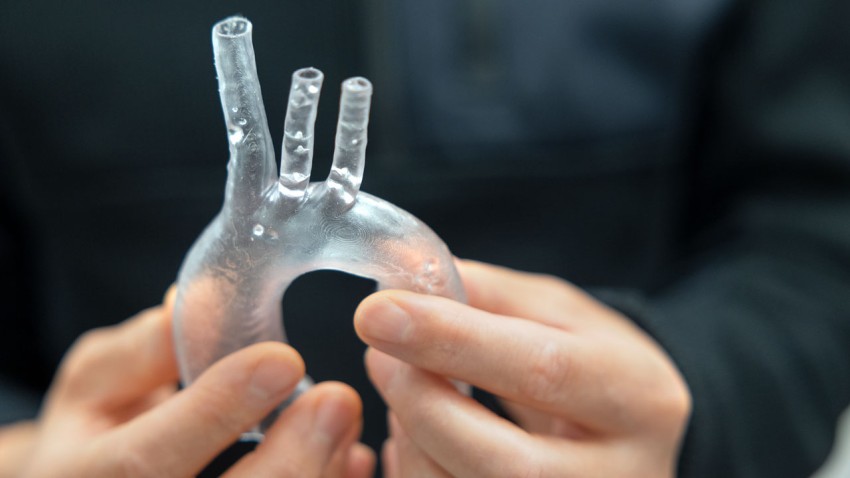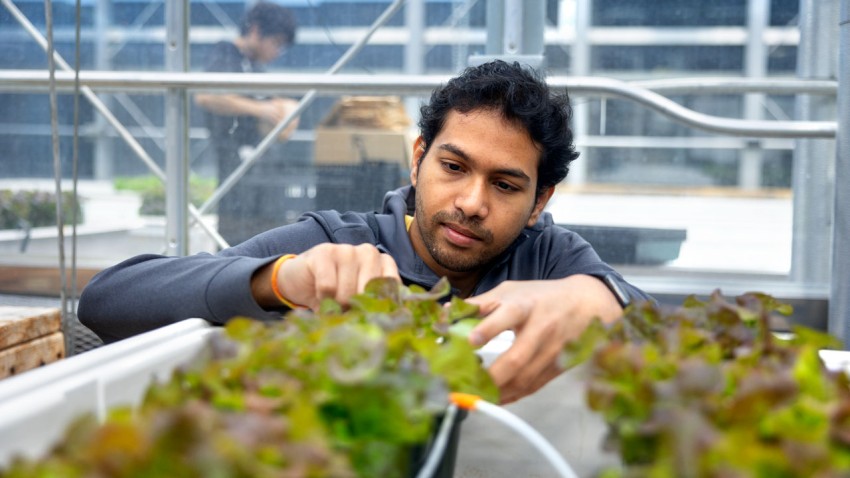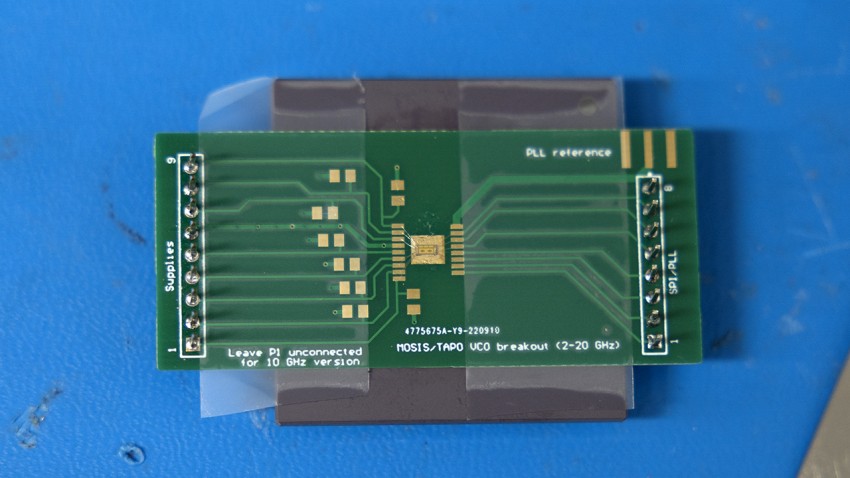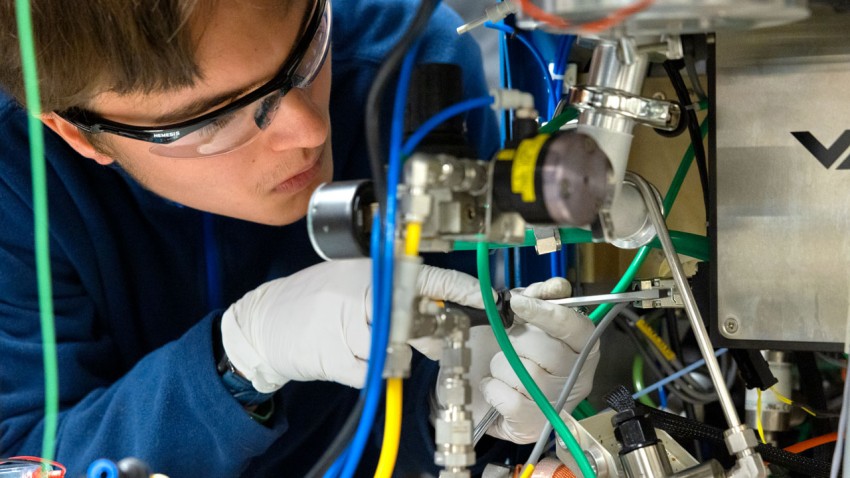News
-
![John Marohn, professor of chemistry and chemical biology, and doctoral candidate Virginia McGhee inspect a electrostatic force microscope that is used to study perovskites.]()
Solar solutions: ‘Crazy’ perovskite offers sustainable alternative to silicon
Over the last decade, perovskite photovoltaics have emerged as the most exciting alternative to silicon, with Cornell researchers studying how the material can be grown to be more durable for optimal performance, and be recycled.
-
![Anova Biomedical's first-of-its-kind biodegradable graft material for cardiovascular patients not only expands and contracts likek blood vessels; it is also absorbed into the body as new cells take its place.]()
New biodegradable graft could help cardiovascular patients
The first-of-its-kind material not only expands and contracts like blood vessels but is also biodegradable; new vascular cells to grow around the graft as the body absorbs it.
-
![soft jellyfish robot]()
‘Embodied energy’ powers modular worm, jellyfish robots
In the same way that terrestrial life evolved from ocean swimmers to land walkers, soft robots are progressing, too, thanks to recent Cornell research in battery development and design.
Latest Awards and Recognition
View all-
Wagner serving as Board of Governors President
Aaron Wagner, professor, is serving as President of the IEEE Information Theory Society’s Board…
March 24, 2025
-
Li receives Engaged Opportunity Grant
Qi Li, associate professor, was part of a team that received an Einhorn Center…
March 24, 2025
-
Goldberg honored for community-engaged innovation
David Goldberg, associate professor, has been selected to receive a 2025 Community-Engaged Practice and…
March 10, 2025
-
Hanrath elected Croll Professor
Tobias Hanrath has been elected the Croll Professor of Sustainable Energy Systems for a four-year…
March 3, 2025






